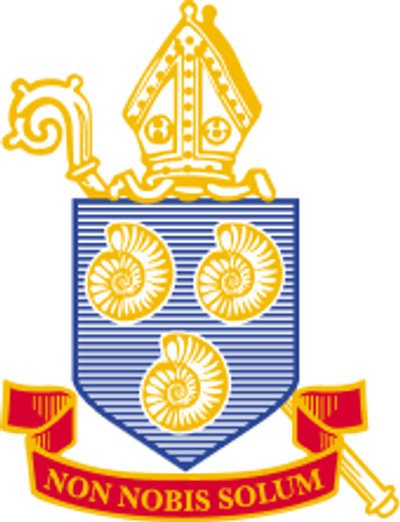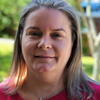In the rapidly evolving landscape of education, Majda shines as a transformative leader whose motto "Leading from within" embodies her approach to fostering excellence and innovation in teaching. Her impact stretches far beyond the classroom, encompassing various roles and initiatives that underpin her commitment to educational advancement.
Q: Your motto is "Leading from within." How does this principle shape your approach to teaching and leadership?
Leading from within recognises that while formal titles can enhance leadership, true influence and inspiration can come from any position, empowering individuals to drive change and support others regardless of their role. It’s about using your skills, knowledge, and passion to drive change and support others. In teaching, it’s crucial to empower students and colleagues by fostering an environment where everyone feels valued and heard. This approach helps create a culture of trust and collaboration, which is essential for transformative learning.
Q. Besides your involvement with the QCAA, are you engaged with other groups or associations that contribute to your commitment to advancing education?
Yes, I’m actively involved in several professional networks, including the Queensland Economics Teachers Association (QETA) and the Queensland Branch of the Australian Council for Educational Leaders. My work also extends to organisations like Women in Mining Resources in Queensland and the Queensland Minerals and Energy Academy. Additionally, I founded the Gold Coast Economics Community of Practice in 2019 and have been dedicated to supporting early-career teachers through mentorships. One of my greatest joys is seeing my former students follow in my footsteps—one of my previous economics students is currently studying to become an economics teacher and is already attending the Gold Coast Community of Practice (GC CoP). This reinforces my belief in the power of mentorship and nurturing the next generation of educators.
Q: Your leadership roles within the Queensland Curriculum & Assessment Authority (QCAA) have spanned nearly two decades, significantly impacting the educational landscape in Queensland. Can you share more about the scope of your work and its influence on education?
Following my time as the Chair of the district review panel for economics, I became part of the Expert Writing Team tasked with redeveloping the syllabuses in preparation for the new Queensland Certificate of Education (QCE). This transition period was critical, where I contributed to shaping the curriculum and later played a key role in its implementation. I continue to serve as a Lead Confirmer, Lead Marker, and Subject Matter Expert in various roles with QCAA, ensuring that the new system is robust and reliable.
Q: You’re known for your advocacy in shifting educational models to focus on humanity and student-centred learning. What are the key elements you believe are essential for this transformation?
The shift towards a more human-centered educational model involves several key elements. First, we need to prioritise meaningful learning experiences that connect with students’ lives and identities. Building supportive relationships is essential, as they foster trust and engagement. Additionally, it’s important to move away from traditional industrial models of schooling and instead focus on nurturing curiosity, open-mindedness, critical and creative thinking, and emotional intelligence.
Creating environments where students can explore, question, and contribute to society is crucial for their holistic development. I am deeply passionate about the joy of learning, and it’s important to me that this joy is shared with my students in their day-to-day experiences. I aim to bring a sense of curiosity and excitement into every lesson, making learning not only meaningful but also enjoyable for my students.
Q: Your involvement in the Meta Masters Group is a notable aspect of your work. How does this initiative complement your class- room teaching, and can you share more about the International Women’s Day event led by the group and any other initiatives you might be considering?
The Meta Masters Group is a key component of my educational philosophy,
extending learning beyond traditional classroom settings. Established in 2023, the group focuses on equipping students with essential life skills like emotional intelligence, open-mindedness, curiosity, and critical thinking. It provides a dynamic environment where students engage in discussions, debates, and active learning, emphasising the importance of understanding and exploring what we don’t know.
A highlight was the student-led International Women’s Day event in Term 1, 2024, featuring a Q&A with Old Girls. This authentic, unrehearsed session helped students develop leadership, organisation, and public speaking skills while fostering meaningful conversations about inclusion, gender equality, and professional experiences.
Q: Your contributions to the academic scholarship community are extensive. Can you share some examples of how you have engaged with and influenced this community through your work and presentations?
Absolutely. My involvement in the academic scholarship community has been a key part of my professional journey, enabling me to share insights, collaborate with peers, and contribute to the broader educational discourse. A highlight of this journey was presenting at the World Congress of Modern Languages in Niagara Falls in 2015, where I shared my work on Developing iTunes U Courses for Languages. It was particularly rewarding as one of my courses was recognised as one of the top ten standout courses in the world from 2013 to 2021.
In 2023, I presented at the Asia Pacific Summit on Girls’ Education for the International Coalition of Girls Schools in Hobart, focusing on strategies for empowering young women through trust-building and professional practice. Earlier this year, in 2024, I spoke at the Independent Schools of Queensland Curriculum Leaders Forum, where I emphasised the importance of fostering environments that encourage deep, transformative learning experiences.
Q: You were recently awarded the Excellence in Educational Leadership Award by ACEL QLD. What does this recognition mean to you?
I am truly humbled by this award. It represents not just a personal achievement but also a recognition of the work I’ve been committed to and the positive impact I’ve strived to make while leading from the middle. For me, teaching in the education sphere is more than just a profession - it is a vocation based around serving our girls, our Queensland students, and ultimately the common good of our society. If we all approach education with the goal of achieving this common good, we can rest easy knowing we are making a meaningful difference. This honour reinforces the value of collaborative leadership and motivates me to continue fostering innovation and excellence in education.
You’ve mentioned your plans to take long service leave in 2025. What inspired this decision, and how do you envision spending that time?
After many years of dedicated service and commitment to education, I believe it’s important to take a step back and recharge. Taking long service leave in 2025 will allow me the opportunity to reflect, rejuvenate, and explore new perspectives that I can bring back to my work. I plan to spend this time focusing on personal growth, engaging in professional development, and perhaps even exploring some new educational ideas and innovations that could enhance my contributions when I return.
Although I’ll be on leave, you might still see me around occasionally, supporting the Meta Masters and running professional development sessions. It’s a chance to pause, appreciate the journey so far, and prepare myself for the next chapter in my career, ensuring that I continue to serve our girls and community with renewed energy and inspiration. Lastly, I need to rescue a dying garden around the house!!


